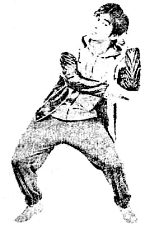题目内容
Keeping a diary in English is one of the1._____ (effect) ways to improve our English writing ability.
2.______ (compare) with other forms of writing, it is shorter and takes3.______ time. It can help us to develop the habit of thinking in English. 4. ______ we persist in this practice, gradually we’ll learn how to express ourselves in English. In keeping a diary in English, we certainly run up against many5.____(difficult). In the first place, 6.______ often happens that we have trouble 7._____(find) appropriate words and phrases to give expression to our mind. Secondly, there are many idiomatic ways of saying things in Chinese. And it is extremely hard for us to put them into English properly.
As far as I 8.___(concern), my suggestion is that we should always have a notebook and a Chinese-English dictionary within easy reach. Whenever something beats us, we can first put it down in our notebook and then consult our dictionary. We can also turn to our English teacher for help, if necessary. In short, I believe that it is9.______ great use to keep a diary in English for 10.______ development of our writing skills.
1.effective
2.Compared
3.less
4.If
5.difficulties
6.it
7.finding
8.am concerned
9.of
10.the
【解析】
试题分析:这是一篇说明类文章,讲述了写日记是一个很有效的方法去提升你的英语。
1.根据后文ways to improve our English writing ability. effective意为有效的,高效率的,是形容词。Effect意为影响,对……有影响。可知写日记是个提升英语的好方法。故填effective。
2. with 意为与……相比,是固定搭配。Compare意为比较,相比,是动词。句意相比其他的写作,英文写作比较短花的时间也较少。故填Compared
3. less time意为花费更少的时间。故填less
4. 。If副词,如果。句意:如果我们坚持训练,我们就会学会去表达自己的语言。故填If
5. difficulties 意为面临许多困难。Difficult表示困难,复数形式表示多重困难,与文中的句意相符合。此处理解在用英语写日记的过程中,我们确实会遇到很多困难。故填difficulties
6.
7. trouble doing sth。意为做……有困难。此处句意为:很难找到合适的词去描述自己的感受。故填finding
8. concerned。As far as sb’s concerned:就某人看来。固定搭配,在句中意为就某人看来。句意:在我看来我们应该总是准备一个英语笔记本。故填am concerned
9. of great use有巨大的作用 固定搭配。在句中意为我相信用英语去写日记会对我们的英语的提高有很大的用处。故填介词of
10. diary in English for70______ development of our writing skills. the特指提高我们的英语写作技能。句意:用英语写日记是为了我们写作技能的提升。故填the
考点:考查单词与语法

 备战中考寒假系列答案
备战中考寒假系列答案Eco reading We offer new, used and out-of-print books,supplied by over 3,000 people from 50 countries.We ship your order directly to you.We also take in used books from schools, libraries, students—anyone with old books—and resell them at low prices.If you order on the Internet, you will get 20% off the cost of your entire order. |
Name Your Music Name Your Music carries personalized music CDs for kids.The songs have a lot of styles, and most of them are familiar to your kids.Every song has a child’s name and they’ll be excited to hear their own name come up in the song.We also do several names on one CD, which is designed for a family with more than one kid. |
Fast Flower It was founded over 77 years ago. We are sure that your order will be filled and sent the same day by a local fast flower shop to your total satisfaction. All of our flowers are put in safe containers. We provide many types of gifts for every holiday.We have over 16,000 member shops throughout the U.S.With the largest flower-sending network,we promise to fill your order within 24 hours. |
Down To Earth Fun Personalized toys can be found at Down To Earth Fun which is owned and run by a work-at-homemother.With over 90% of our toys made in the USA,we offer good service to those who are searching for safe toys.If you are looking for special, high quality toys for a child,Down To Earth Fun is the place for you. |
